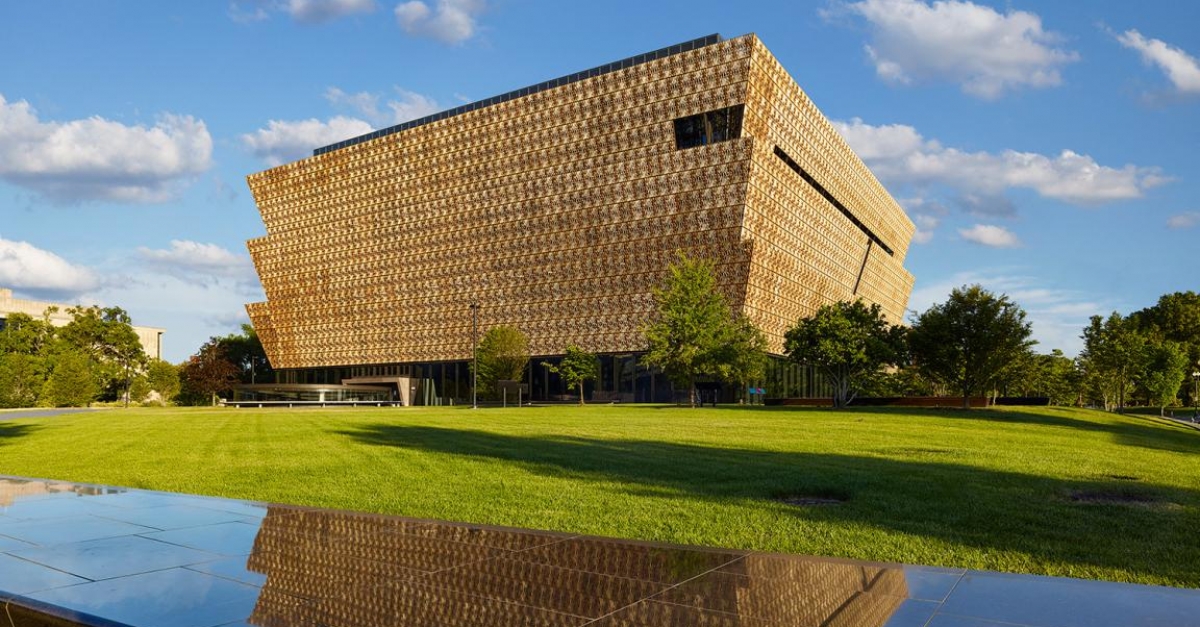[ad_1]
The Smithsonian’s National Museum of African American History and Culture (NMAAHC) hosted the inaugural National Conversation on Race: Reckoning with Our Racial Past this month, the first in a series of conversations across the U.S. that will bring together diverse groups of individuals to discuss race and racism in historical, cultural and contemporary contexts. The panel discussion explored how events during the past two years have affected and shaped the ongoing legacy of race and racism in the U.S. The program, part of Smithsonian’s Our Shared Future: Reckoning with Our Racial Past initiative, included remarks from Smithsonian Secretary Lonnie G. Bunch III and a musical performance by composer and producer Nolan Williams Jr.
The museum will hold its annual Freedom’s Eve program, providing a look into how enslaved African Americans celebrated New Year’s Eve in the past and how the African American community uses food to help bring good fortune into the new year. The two-part program will include curated in-person activities to help plan goals for the new year and conclude with a virtual concert featuring piano prodigy Matthew Whitaker.
This year, beginning Dec. 26, the public can view a new video on Kwanzaa’s history and how to celebrate featuring museum specialist and oral historian Kelly Navies. The public can view the video and learn more about this seven-day celebration of African American culture on the museum’s Kwanzaa webpage. Users can find enlightening videos, unique family activities to do at home and special holiday recipes rooted in Black culinary traditions.
December highlights also include the continuation of the museum’s Dine and Shop Pass option. NMAAHC offers a two-per-day limit of passes to access both the museum store and Sweet Home Café between 11 a.m. to 2:30 p.m. during regular operating hours. Visitors can enjoy a fusion of rich African American culture paired with present-day food traditions like southern buttermilk fried chicken, savory collard greens and mouthwatering macaroni and cheese at Sweet Home Café. Afterward, visitors can stop by the museum store to purchase the perfect holiday gift. Passes must be reserved 48 hours in advance at 8 a.m. ET on a rolling basis.
Highlights of December In-Person and Virtual Programs
Dine and Shop Pass
Daily, Limited Time Only; 11 a.m. to 2:30 p.m. ET
NMAAHC offers a two-per-day limit of passes to access the museum store and Sweet Home Café between 11 a.m. to 2:30 p.m. during regular operating hours. Sweet Home Café boasts a skilled culinary team that serves a wide array of delicious meals and a rotating station with new offerings monthly. The café also features a Market Table where visitors may purchase a copy of the Sweet Home Café Cookbook, specialty sauces and spices. In the museum store, visitors may choose from an extensive assortment of NMAAHC apparel, limited-edition keepsakes, books authored by historians and scholars, handmade textiles, custom-designed jewelry, sauces, spices and more to help memorialize the life-changing visit to the museum. Passes must be reserved 48 hours in advance at 8 a.m. ET on a rolling basis.
Kwanzaa
Monday, Dec. 26−Sunday, Jan. 1 (Virtual)
Kwanzaa is a time for families and communities to come together to remember the past and to celebrate African American culture. Created in 1966 by Maulana Ron Karenga, Kwanzaa is an African American and Pan-African holiday that celebrates history, values, family, community and culture. The seven core Kwanzaa principles: Umoja (Unity), Kujichagulia (Self-Determination), Ujima (Collective Work and Responsibility), Ujamaa (Cooperative Economics), Nia (Purpose), Kuumba (Creativity) and Imani (Faith) are all drawn from communication values found throughout the African continent. Information on how to celebrate Kwanzaa and to learn more about its history is on the museum’s Kwanzaa website.
Freedom’s Eve: Celebrate the Coming New Year
Saturday, Dec. 31; 11 p.m. to 3 p.m. (In Person)
New Year’s Eve has been a cause for celebration since Dec. 31, 1862, when enslaved people in the Confederate States stayed up until midnight to watch and wait for the freedom granted by the Emancipation Proclamation. At the close of this year, program attendees can honor the past and present at the museum with activities that invite them to consider their hopes and dreams for the future, learn about the past and learn about foods that will bring luck and good fortune.
Admission is free; however, registration is required.
Freedom’s Eve: Watch Night Concert—Musician Matthew Whittaker
Saturday, Dec. 31; 7:30 p.m. to 8:30 p.m. ET (Virtual)
Celebrate Watch Night with a virtual concert by jazz pianist Matthew Whitaker; a musical prodigy who started playing music at age 3. At 21 he already has many firsts and honors to his name who has said “I am a musician, who happens to be blind…I have been blessed with a God given gift and my prayer is that I can continue to be a blessing and inspiration to others.”
This 90-minute concert will be introduced by museum curator of religion Teddy Reeves, who will give a brief overview of the significance of Watch Night and will end the concert with a non-denominational blessing. Audiences will be able to watch the event on the museum’s Youtube channel until Jan. 31, 2023.
About the National Museum of African American History and Culture
Since opening Sept. 24, 2016, the National Museum of African American History and Culture has welcomed more than 8.5 million in-person visitors and millions more through its digital presence. Occupying a prominent location next to the Washington Monument on the National Mall in Washington, D.C., the nearly 400,000-square-foot museum is the nation’s largest and most comprehensive cultural destination devoted exclusively to exploring, documenting and showcasing the African American story and its impact on American and world history. For more information about the museum, visit nmaahc.si.edu follow @NMAAHC on Twitter, Facebook and Instagram or call Smithsonian information at (202) 633-1000.
# # #
SI-397-2022
[ad_2]
Source link
